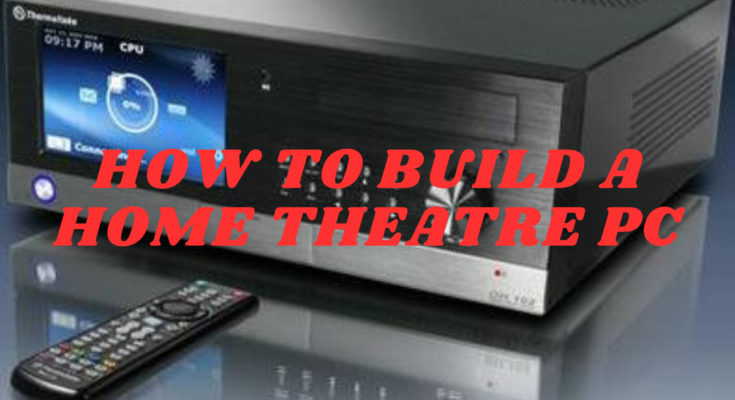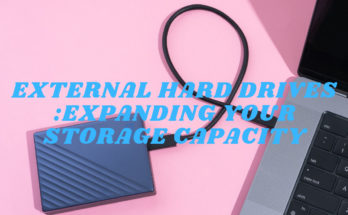To build a home theatre PC (HTPC), follow these steps:
Determine your budget and desired specifications for your HTPC, including processing power, storage capacity, and graphics capabilities.
Choose a suitable computer case that fits your entertainment center and has enough space for all your components.
Select a compatible motherboard that supports the processor and other components you plan to use.
Choose a processor (CPU) that meets your performance needs. Consider models optimized for multimedia tasks.
Install sufficient RAM (memory) to ensure smooth playback and multitasking. Aim for at least 8GB, but consider 16GB for better performance.
Select a storage solution, such as a solid-state drive (SSD) for fast boot times and program loading, and a larger hard disk drive (HDD) for storing media files.
Choose a dedicated graphics card if you plan to play games or watch high-definition content. Integrated graphics on the motherboard may be sufficient for basic multimedia needs.
Pick a reliable power supply unit (PSU) with sufficient wattage to support your components and ensure stable power delivery.
Add a TV tuner card if you want to watch and record live TV on your HTPC.
Install a Blu-ray or DVD drive if you plan to watch physical media. Alternatively, a media server can be used to stream content.
Consider a wireless keyboard with a built-in touchpad or a media center remote for convenient control.
Install an operating system (e.g., Windows or Linux) and configure the necessary software for your media playback needs (e.g., media player, streaming apps).
Connect your HTPC to your TV or projector using an HDMI or DisplayPort cable.
Set up your audio system by connecting speakers or a soundbar to your HTPC’s audio outputs.
Configure your HTPC’s display and audio settings according to your preferences.
Install media center software (e.g., Kodi, Plex) to manage and organize your media library.
Connect your HTPC to the internet for streaming content and software updates.
Test your HTPC by playing various media files and adjusting settings as needed.
Remember to consult component compatibility guides and consider future upgradability when selecting parts for your HTPC.
TIPS AND RECOMMENDATIONS
Here are some additional tips and recommendations for building a home theatre PC (HTPC):
Consider a compact and quiet case designed specifically for HTPCs to minimize noise and fit in your entertainment center seamlessly.
Opt for a low-power and energy-efficient processor to reduce heat and power consumption, especially if your HTPC will be running for extended periods.
Invest in a high-quality graphics card if you plan to play demanding games or watch 4K content. Look for models with HDMI 2.0 or DisplayPort 1.4 outputs for optimal video quality.
Prioritize fast and reliable storage options like NVMe SSDs for your operating system and frequently accessed media files. Use larger HDDs or network-attached storage (NAS) for storing larger media libraries.
Consider a media center software like Kodi or Plex, which offer intuitive user interfaces and support for various media formats. They can enhance your HTPC experience by providing a unified media library and seamless integration with streaming services.
Ensure your HTPC is equipped with sufficient cooling to prevent overheating. Use case fans, CPU coolers, and proper ventilation to maintain optimal temperatures.
If you plan to connect multiple devices to your HTPC, such as gaming consoles or set-top boxes, consider a receiver or HDMI switch to simplify switching between inputs.
Connect your HTPC to a reliable wired network connection whenever possible for consistent streaming and faster data transfers. If a wired connection is not feasible, consider a high-quality Wi-Fi adapter or powerline adapters for a more stable wireless connection.
Take advantage of media server software like Plex to stream content to other devices within your home network, such as smartphones, tablets, or smart TVs.
Consider a universal remote control or smartphone app that can consolidate and streamline the control of your HTPC and other entertainment devices.
Set up automatic backups of your media library to protect your valuable content in case of hardware failure or data loss.
Keep your HTPC’s operating system and media center software up to date to ensure compatibility, security, and access to new features.
Remember to research and read reviews of specific components before making your purchases to ensure they meet your requirements and are compatible with your chosen software and operating system.



